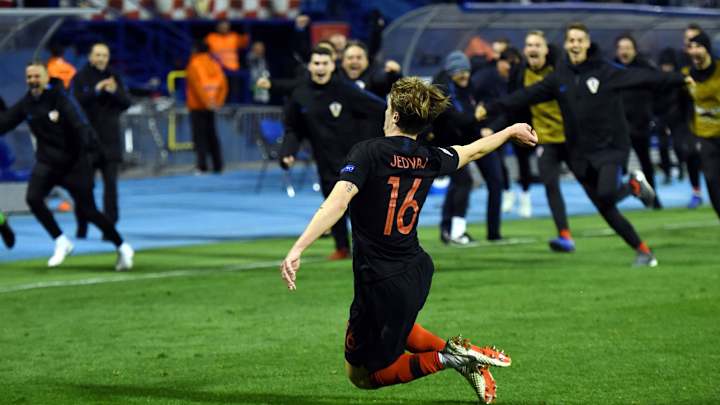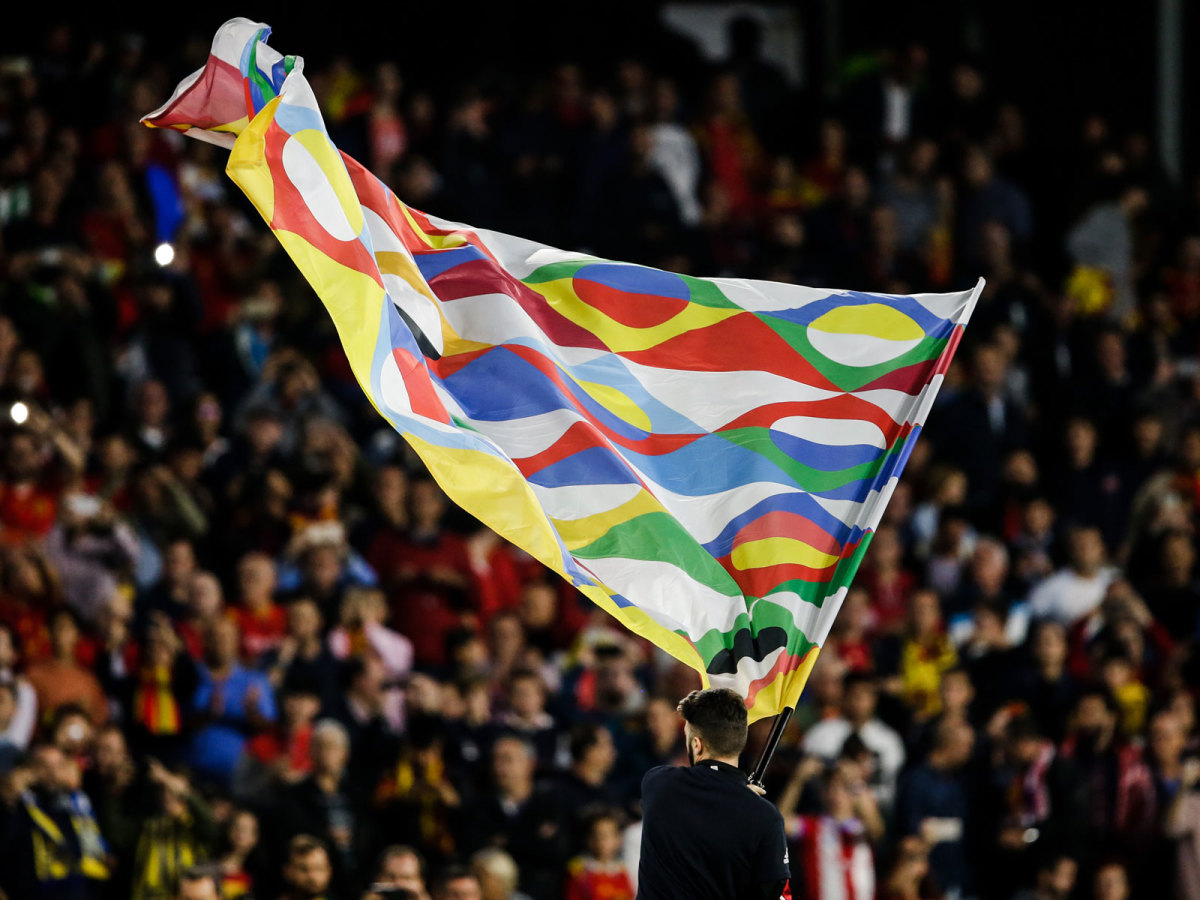The Early Success of the UEFA Nations League

As Wayne Rooney was providing a handy metaphor for his entire career by narrowly failing to get on the end of a late cross at Wembley against the USA on Thursday, remarkable things were happening for England in Zagreb. Tin Jedvaj scored a last-minute winner for Croatia against Spain, and suddenly a world of possibility opened up.
After England’s victory over Spain in Seville last month, the feeling had been that it was a nice memory, something that may be regarded in time as a key staging post in the ascent of Gareth Southgate’s side. There was the promise of the World Cup and then this. All portended well for Euro 2020 or at the very least, as the Under-20 World Cup-winning team of 2017 is slowly integrated, 2022 or even 2026. The Nations League, though, had seemingly gone, let slip with that 0-0 draw in Croatia last month.
But England's Nations League prospects suddenly are very much alive again. England faces Croatia at Wembley on Sunday knowing that whoever wins will make next summer’s four-team finale, and whoever loses will be relegated to League B. If it is a tie, then Spain moves on to the semifinal. Croatia would be relegated if it is a scoreless draw, and England if it is a draw featuring goals. For an England team getting better and better, there is now the tantalizing prospect of a major trophy within the year.
CREDITOR: Nations League's Promotion, Relegation, Semifinal Scenarios
If it is considered a major trophy, that is. Would this count? Were England to win next summer, do we reset the clock and declare the 53 years of hurt officially over? Perhaps such matters are academic and their consideration premature, but the point is that the Nations League has kindled the spark of the World Cup, and England, having put behind it the star-laden sluggishness of the recent past–a reminder of which was offered by Rooney’s cameo on Thursday–implausibly looks like a side that might actually have a chance of winning a major tournament in the not-too-distant future.
And yet it could still be relegated on Sunday. That, and the frantic nature of Croatia’s win over Spain, suggests just what a success the Nations League has been so far.
Spain, for its part, has had a bizarre Nations League, putting six past Croatia at home to suggest that Luis Enrique had soothed the chaos that followed Julen Lopetegui’s dismissal in the summer, only to then lose back-to-back games 3-2. Its four games have yielded two wins, two defeats and 19 goals. Luis Enrique, it’s fair to say, probably hasn’t quite gotten the defensive balance right just yet.
No other group has yielded quite such thrills as League A Group 4, but elsewhere the narrative has moved on in a way it probably wouldn’t have done if European football had been slowly ticking through the early phases before qualifying for Euro 2020 kicked off. In that sense, the Nations League has been an accelerant, developing themes that emerged at the World Cup.

Germany, for instance, has dwindled even further, without a win in three Nations League games and soundly beaten by a Netherlands side beginning to show signs of a resurgence under Ronald Koeman. France, meanwhile, remains an oddly unconvincing champion, less dominant than the sum of its parts. Holland's win over France on Friday meant relegation for Germany and kept alive the possibility of the Oranje reaching the summer semifinals out of that treacherous group.
Elsewhere in League A, the decline of Iceland and Poland, which began at the World Cup, has continued, while there are only limited signs of an uptick for Italy.
Ukraine and Bosnia-Herzegovina have already won promotion to League A, while the Republic of Ireland’s struggles continue. It will probably sink into League C, raising questions about the future of its manager Martin O’Neill. Northern Ireland, after its unexpected run at Euro 2016, also seems to be in regression.
WILSON: The UEFA Nations League and Its Impact on Euro 2020
Serbia, which always seemed a slightly odd fit for League C, should win promotion and with it a place in at least the playoffs for Euro 2020 qualification, although Saturday’s home game against Montenegro is key. At the same level, though, there has been little sense of improvement for Scotland under Alex McLeish, although if it can take a point in Albania on Saturday, it would claim promotion and at least a playoff spot by beating Israel at home next week.
The biggest winner of the new format, though, could be Georgia, which has already won League D Group 1, scoring 10 goals and conceding only one in its five games to date. That guarantees it at the very least a playoff spot next summer, which shows the benefits of the revised system. Georgia has a bright, young squad and, rather than years spent climbing the coefficient tables and hoping for a kind draw, it now has a good chance of making a major tournament while it is still hot.
For all the skepticism that greeted its inception, the Nations League has produced exciting football and generated intriguing narratives. At this stage, it’s looking a major success.
